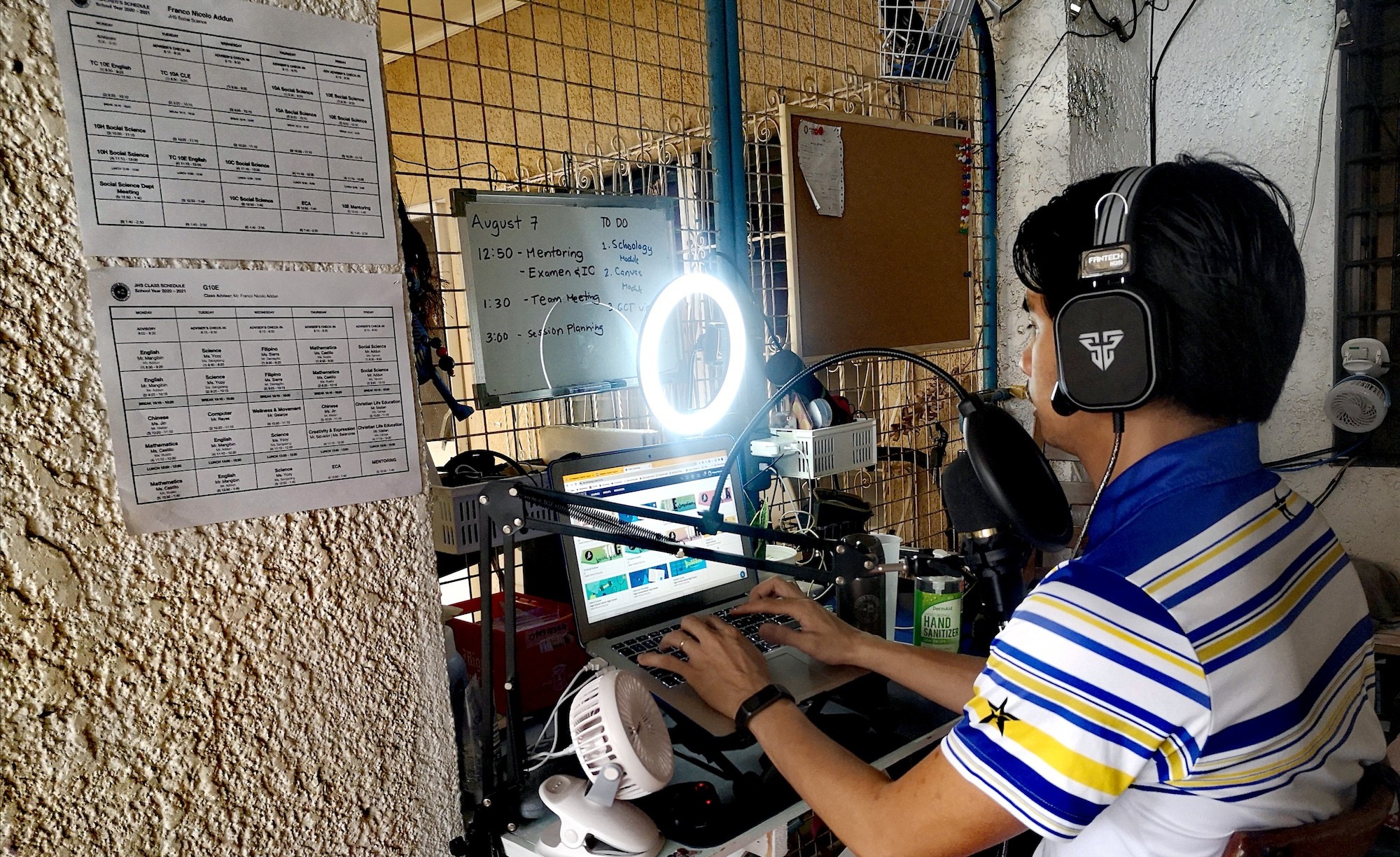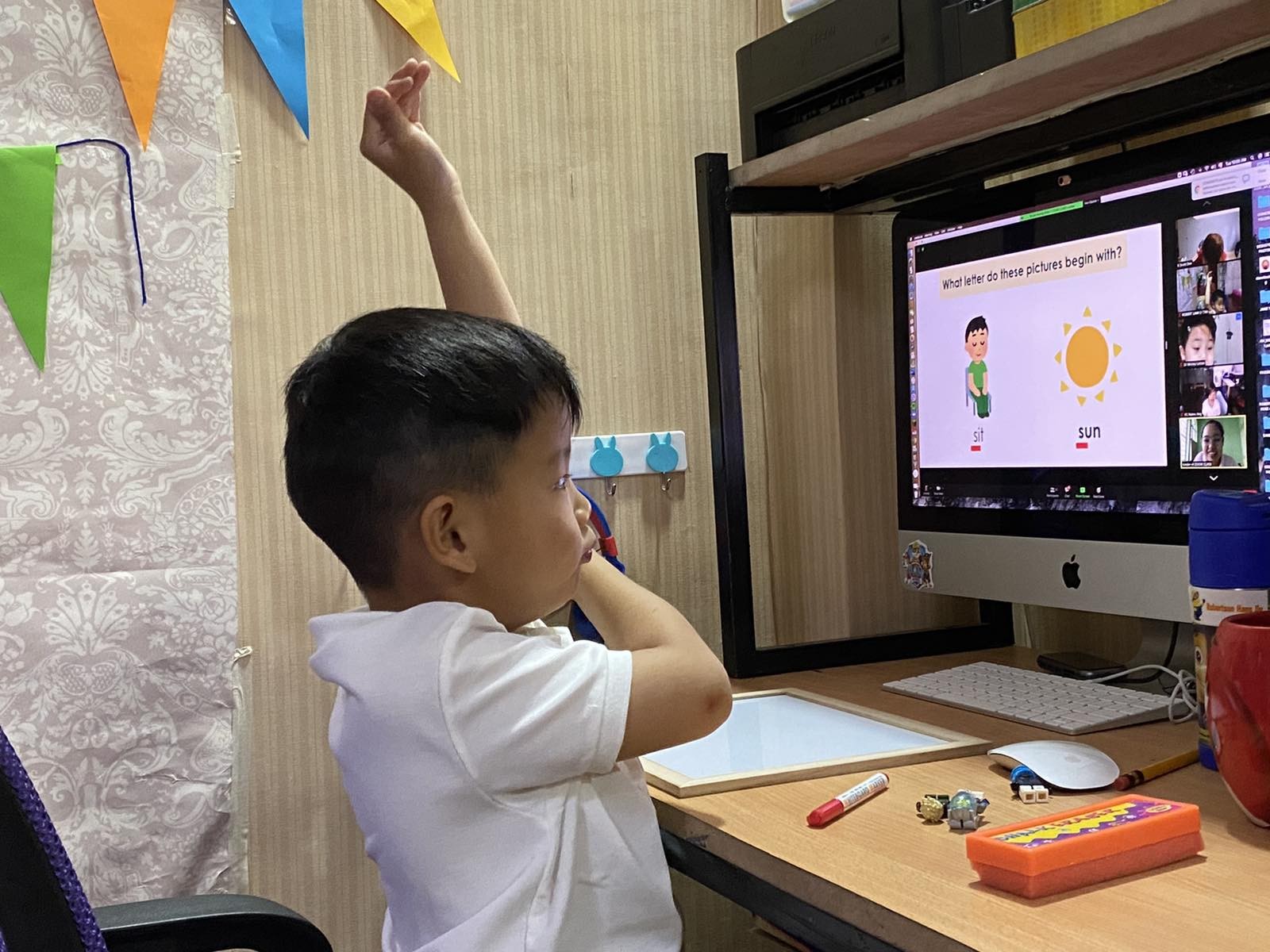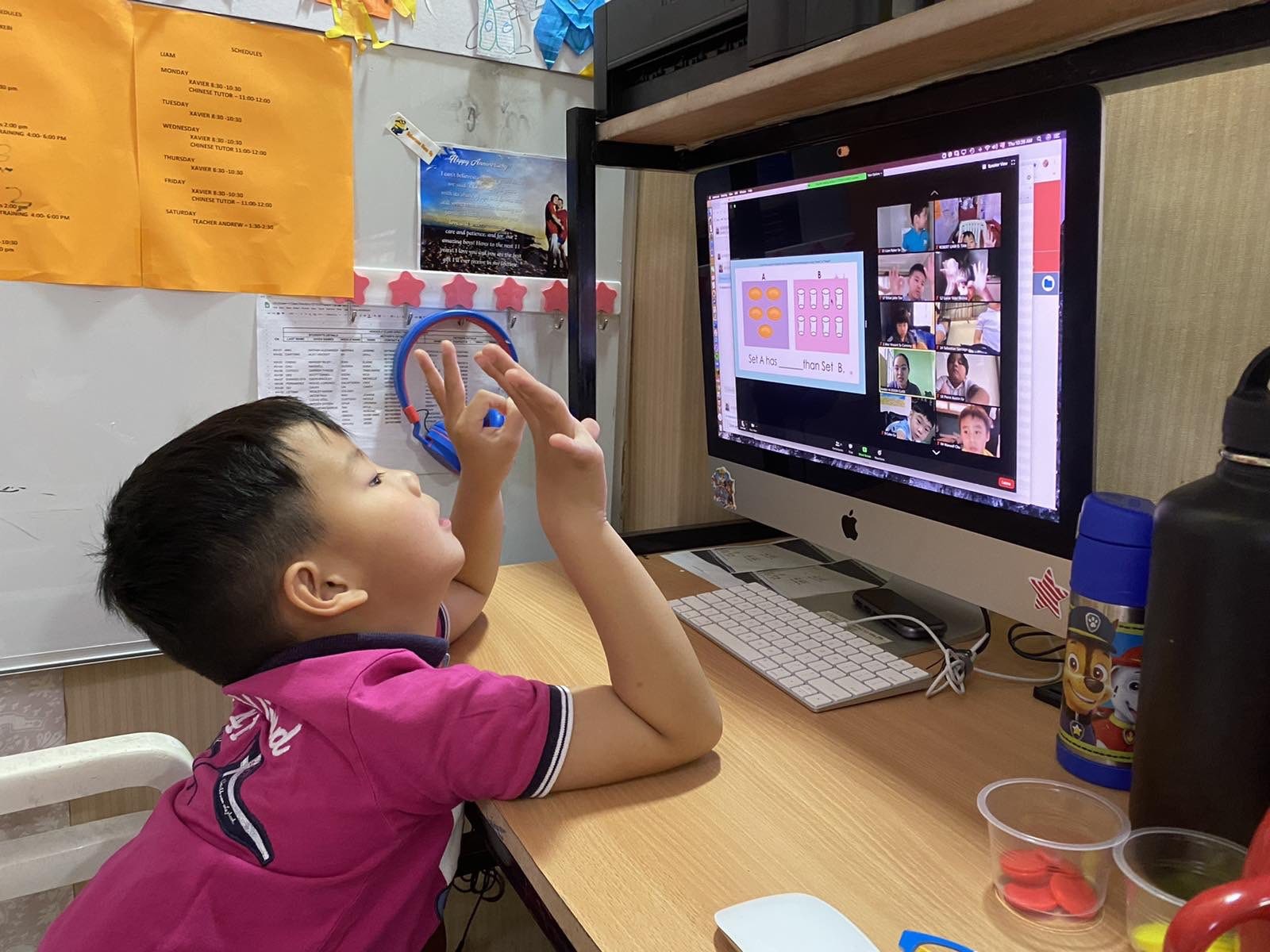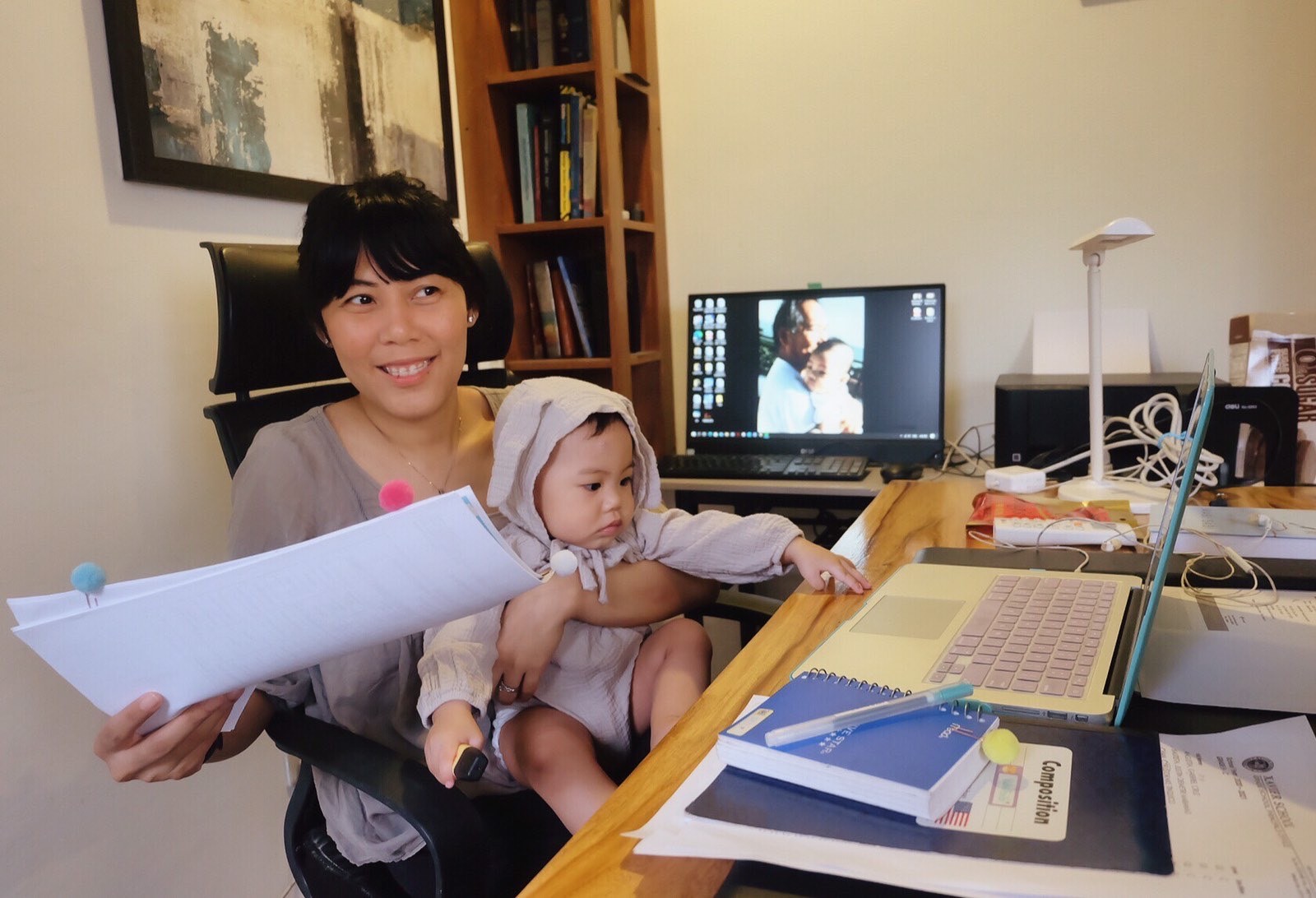Where has the time gone?
On the one hand, five months after the COVID-19 pandemic left me with no choice but to stay put inside the campus of Xavier School San Juan with my small Jesuit community, it seems like the months have gone by very quickly. Jesuits live very active lives and the community can feel like a boarding house in the best of times, but the time of quarantine changed all that. We have structured our lives around a daily Mass that we livestream to our school community, and engaged in many other activities together.

On the other hand, there has been so much change and adapting to change that I cannot help but marvel at the pace with which we have taken steps to address the rapidly unfolding situation. I can feel the fatigue that comes from so much thinking and decision making, without the luxury of time to find and consider more data before taking any steps that will affect the lives of so many people.
As the CEO of a school with two campuses, serving more than 5,000 students and close to 600 faculty and staff, my first instinct was to take care of people. We went into lockdown in March just a few days before final exams would have closed the academic year, so we strove to determine the final grades of all students based on their class standing and prepared their report cards electronically. We could not hold many of the cherished year-end rituals in the face of a public health scare, but we completed the minimum requirements for the students so they would have no problems enrolling for the following school year, whatever the circumstances would be and wherever they would end up studying.
Normally, all employees have to go through clearance procedures before going on summer break, but I decided to suspend all the requirements and pledged to continue paying their salaries beyond the end of the fiscal year on March 31st. We went into summer break and prepared for the Holy Week not knowing what the following school year would be like.
“ At Xavier, we already have a long history of using technology in education, but the effort suddenly went into overdrive. The use of technology was no longer something to encourage, but an urgent requirement. And so it was that we all learned the new vocabulary of synchronous and asynchronous learning. ”
In those early days, one of the battle cries in education that kept reverberating was “Maslow before Bloom,” referring to the work of two American psychologists. People needed to have their basic needs met first (Maslow), before educational objectives (Bloom) could be classified and pursued. Take care of people first, and then think about education. This principle was a beacon of light for me.
During Easter week in mid-April, I called my council to a meeting via Google Meet, and all of us fumbled with the technology, struggling to see and hear each other. The pandemic was still unfolding and it was clear that we could not start a new school year in June, so we crafted a plan for online learning following a trimestral schedule that would commence in late July. We reworked our budget projections and secured the board of trustees’ approval to suspend the plan to increase tuition fees, reduce miscellaneous fees, and commit to delivering at least the first trimester completely online, the whole school year if necessary.

We had established a general direction, and the academic leaders of each unit marshalled their respective departments to design an online curriculum and formation program for a time of pandemic. Schedules, grades, various school policies — all these had to be revamped to adapt to new realities. By mid-May, we published our Primer for Xavier School E-Learning (XSEL), and began the arduous task of explaining it to parents to convince them to journey with us in uncharted territory. We knew that enrollment would decline because of the uncertainties and the public health situation. Many families might opt for home schooling, or even take a break from school.
Nothing was clear, but as educators, we knew that learning had to continue. In Jesuit education, we talk about lifelong learning, and we have had to model that during this pandemic. At Xavier, we already have a long history of using technology in education, but the effort suddenly went into overdrive. The use of technology was no longer something to encourage, but an urgent requirement. And so it was that we all learned the new vocabulary of synchronous and asynchronous learning, the options for video conferencing, the smorgasbord of apps and tools for every subject area, etc. School administration set up online enrollment in a matter of a few weeks, devised a way to deliver books while observing all safety protocols and providing employment to our agency personnel, and provided very flexible work arrangements for employees.

In the new normal, we will be required to adapt to change very quickly, so we need to have the openness and flexibility to try new things and learn from our mistakes along the way. Disruption is the new normal, so we take it calmly as a given, and find our way. In this regard, our greatest resource is our people. So many have stepped up and manifested the competence and creativity to respond to the demands of our time, and I am truly in awe of them.
“ At a time in our history when inspiring leadership is sorely lacking, and corruption abounds, we hold on to the hope that the young people we educate today will have the skills they need to navigate the world of the future and leave it better than when they found it. ”
I have learned that the best laid plans of mice and men can go awry, and in fact, the first weeks of classes had their fair share of connectivity problems for both teachers and students, not to mention design flaws in our program that had to be quickly revised. This was made easier by the constructive relationship we enjoy with parents. Every educator probably has horror stories about bashers and negatrons among them, but I always remind myself that there are very few of such parents. We strove to communicate openly with parents from the beginning, sharing much information via circulars, pre- and post-enrollment orientations, and ongoing, open lines of communication so that concerns can be addressed in a timely manner. It is by no means perfect and there are tensions all around, but presuming goodwill on the part of all goes a long way to keep everyone focused on the mission, which is always the best education we can provide to the young ones under our care.

Jesuit schools aim to produce persons for others. Early on in the pandemic, we mobilized quickly to launch the Kalinga Kontra Korona project to support a COVID-19 quarantine/treatment center in our local community in San Juan, raising a very substantial amount for this purpose. In Nuvali, Laguna, we offered our school facilities as temporary accommodations for healthcare workers, and our very young alumni carried out the Tabang Vesta project to provide food and basic necessities to poor families in the community where they had their high school immersion. These efforts remind us that the holistic education we work so hard to deliver is not meant for our personal enrichment, but for service of God and country. At a time in our history when inspiring leadership is sorely lacking, and corruption abounds, we hold on to the hope that the young people we educate today will have the skills they need to navigate the world of the future and leave it better than when they found it.

What have I learned as an educator in this pandemic? Take care of people. Be brave enough to learn new things. Think and plan ahead. Sincerely keep communication lines open. Look for opportunities to be of service, and finally, spend much time in silence if not in prayer. The light will come.
Edited by Büm Tenorio Jr.


